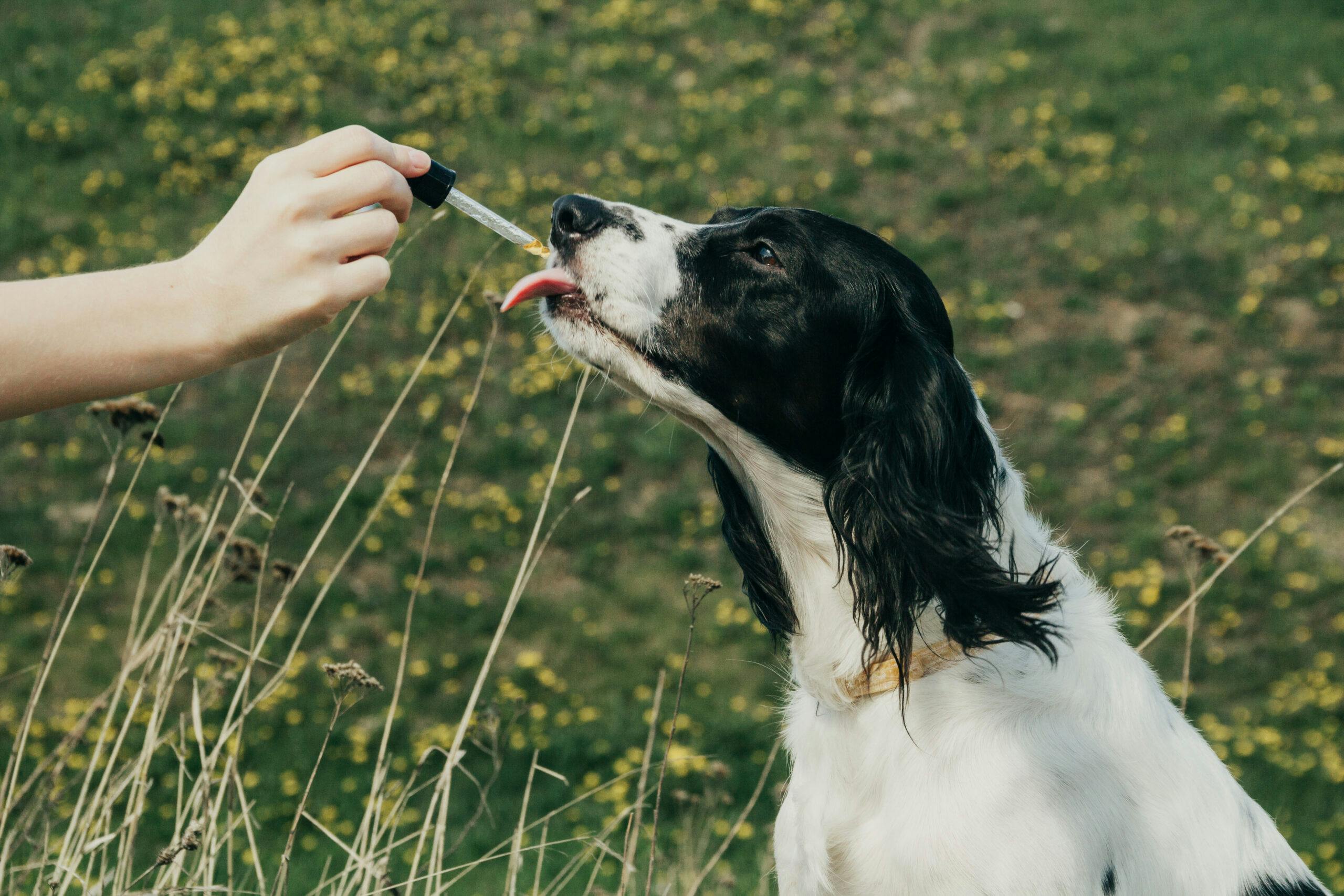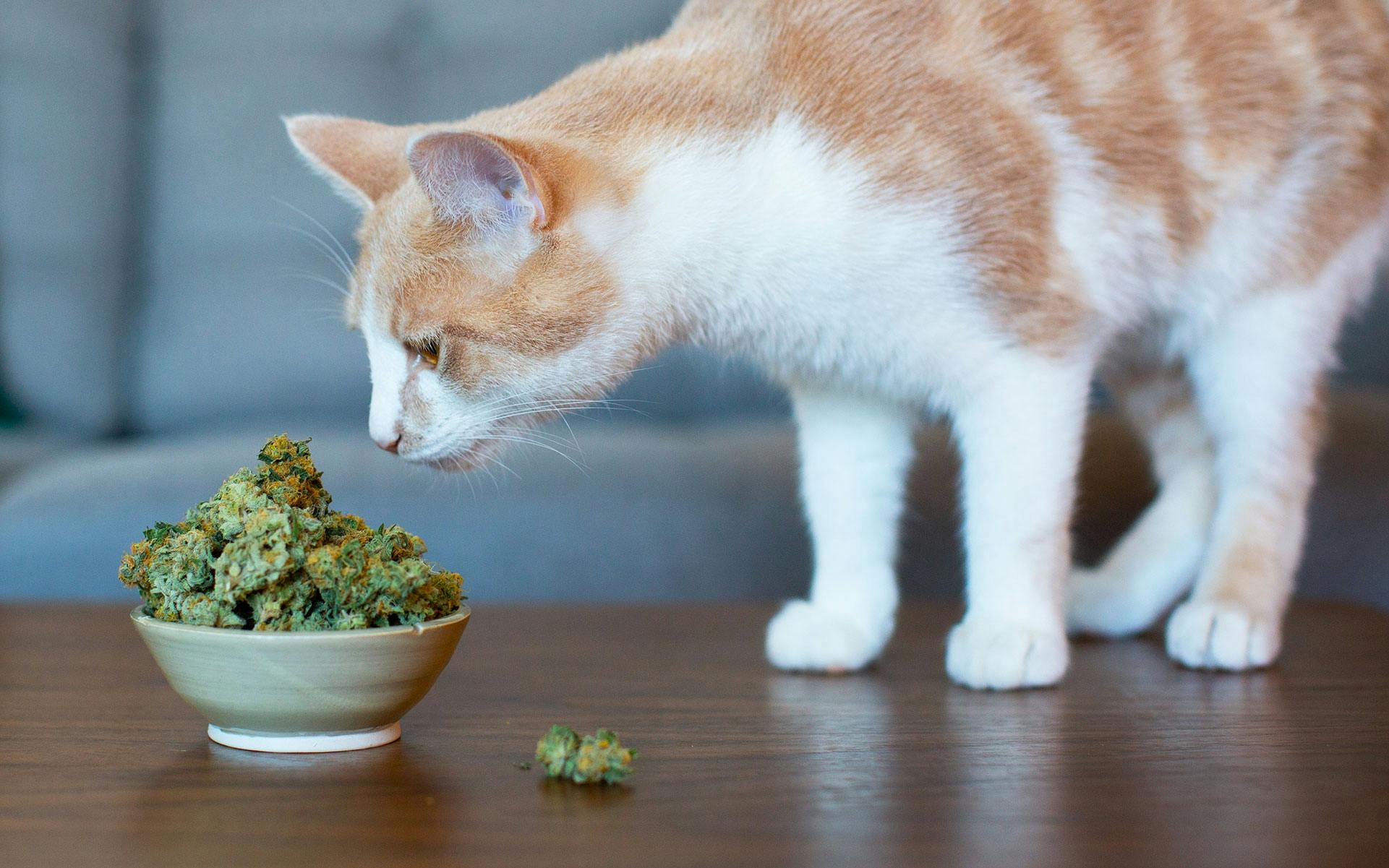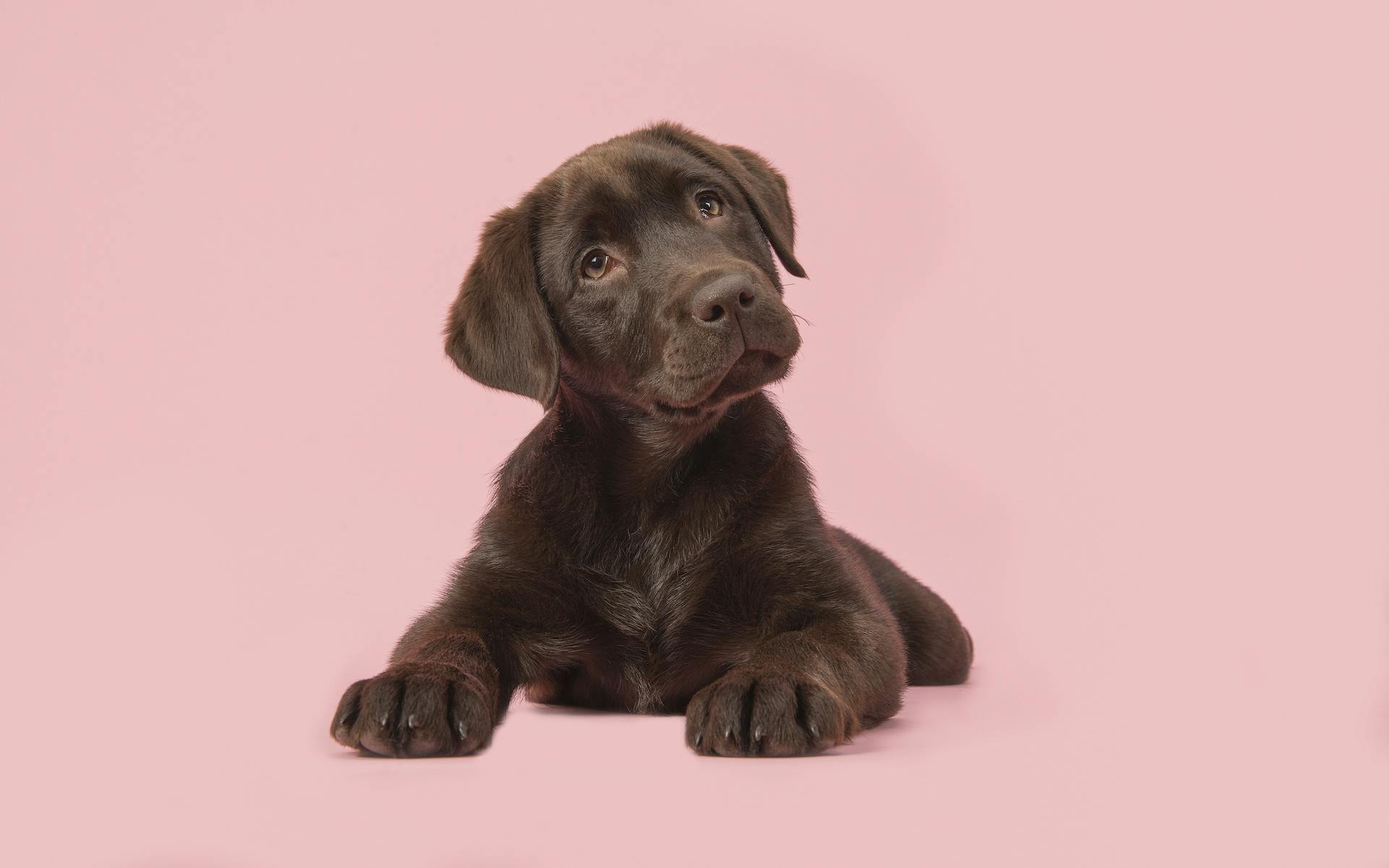This post was updated on January 25, 2022.
If you’ve ever wondered if your pets can get high, the answer is yes, but they don’t like it and it’s not good for them.
While massive strides have been made recently when it comes to understanding our animal friends, their inability to self-report makes it impossible to ever know what’s actually going on in their heads.
Secondhand cannabis smoke may seem innocuous—do you really know anyone who got legit high from it?—but for pets, it’s a different and much scarier scenario.
Use cannabis indoors? You could be accidentally hotboxing your pet.
A pet’s behaviour can change dramatically if they’re around weed smoke.
While nobody, we certainly hope, is hotboxing Fido these days, it is true that pets can be affected by weed byproducts like secondhand smoke. Animals, especially cats and dogs, have more cannabinoid receptors than people, so they feel the effects of THC more strongly.
“Pets can get high from secondhand smoke and I would obviously not advise smoking anything around pets,” says Dr. Scott Bainbridge, a Toronto-based veterinarian. “Not only are they quite sensitive to THC but their lungs can be easily irritated by smoke and may lead to issues like asthma, bronchitis etc.”
You might think secondhand cannabis smoke and pets would be under-researched, but as far back as 1976, scientists found that inhaled cannabis smoke in dogs can induce respiratory tract infections such as bronchiolitis, and potentially cause pulmonary emphysema.
In a 2018 study focused on one cat exposed to cannabis smoke, researchers found the feline “developed alternate states of agitation and apathy, each lasting several minutes… The cat also demonstrated increased thirst, polyuria, attacks of gluttony mixed with periods of inappetence. During the attacks, the animal was not able to eat or drink by itself.”
Secondhand smoke, of course, is also a problem; but so is what’s known as thirdhand smoke, which is defined as smoke that has penetrated household surfaces like furniture and clothes. Cats and certain breeds of short-snouted dogs are particularly sensitive to third-hand smoke.
Accidental THC intoxication is no joke
Contact high jokes aside, getting your pets secondhand stoned is no laughing matter. Most cases of pet intoxication come from curious animals finding edibles or flowers and ingesting them. That means an automatic trip to the vet. Don’t be shy about reporting what happened.
Shop highly rated dispensaries near you
Showing you dispensaries nearGoing hand-in-hand with weed smoke inhalation is THC intoxication due to cannabis ingestion, which is happening more frequently with domestic pets. In the US, the Pet Poison Helpline reported an increase of more than 400% in the number of calls they took about cannabis-related incidents over a six-year period.
Symptoms of THC intoxication in pets include disorientation, lack of coordination, drooling, excess urination, vomiting, reduced heart rate, hyperactivity and pupil dilation. A trip to the vet will usually result in an IV to replace fluids, anti-nauseants to prevent vomiting, and/or activated charcoal to aid the digestive system.
A 2021 Canadian study also spotted an increase in dog illnesses due to eating raw cannabis or edibles.
“Dogs are not very discriminating in what they eat and are known to snatch food from kitchen counters and bedside tables as well as eat things off the floor or ground,” says the study’s lead author, Mohammad Howard-Azzeh. However, the study used US data from 2009-2014, which predates legalization in Canada (but the problems are “similar” in Canada, according to the researchers).
What about medical cannabis or CBD for pets?
While there’s not much evidence that CBD oil is bad for pets, there’s just as little that it’s good for them. It would be wise to consult with a vet before undertaking any such course of treatment.
Dr. Trina Hazzah, president of the Veterinary Cannabis Society in L.A., agrees, noting how pets can get intoxicated if exposed to enough high-THC cannabis smoke.
And you don’t want to use secondhand smoke as a way to treat your furry friends with medical cannabis, as a shortcut approach to therapeutically administering cannabis.

“It is not recommended to treat your pet with cannabis in this fashion as there is no way to determine how many milligrams of cannabinoids they are receiving,” Dr. Hazzah says, “and it may cause irritation to their respiratory system, eyes, and even gastrointestinal tract.”
If your pet experiences accidental intoxication, it’s important to keep your pet in a safe, ideally welcoming, place. Just as animals don’t know how they got high, they also don’t know that it will ever end, so comforting them until it passes is necessary.
Keep your fur family safe
To prevent pets from being affected by human cannabis use, it’s smart to contain smoking or vaping in a single, well-ventilated room, ideally one that pets don’t frequent. Stash boxes aren’t just to protect kids, there are lots of options for securing your weed at home.
Steam-cleaning upholstered furniture and rugs can help, as can keeping your pets groomed properly. But the most important thing a good pet owner can do is to make sure all of their cannabis products are securely out of the reach of any curious pets.








